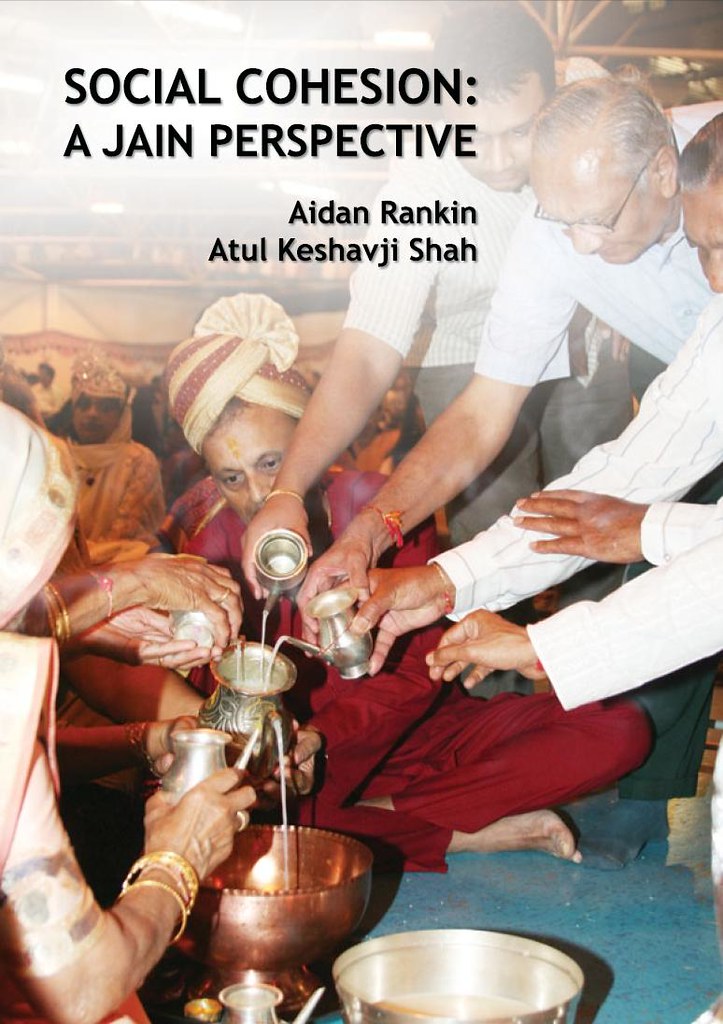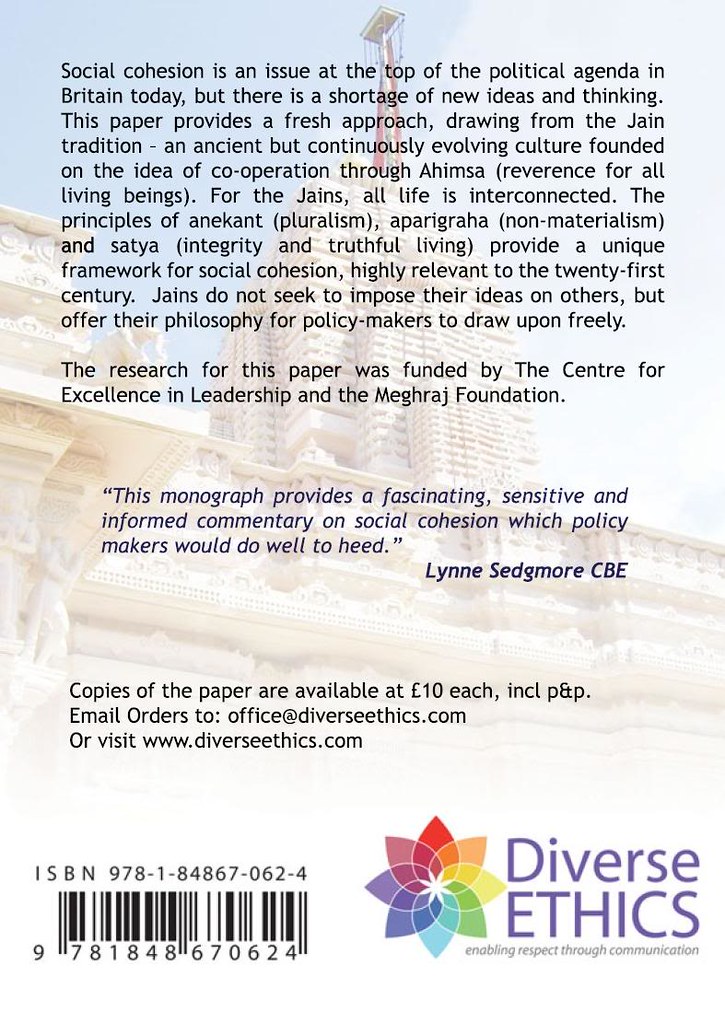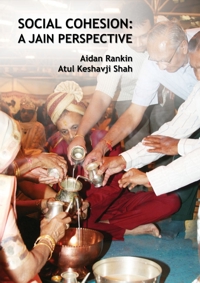
Book Contents | Book Page |
Foreword by Lynne Sedgmore CBE | 2 |
Acknowledgements | 3 |
Introduction: The Relevance of Jainism | 4 |
1. What is Jainism? | 9 |
2. Jainism and Social Cohesion | 15 |
3. Issues and Solutions | 21 |
4. Interconnectedness and Interdependence | 41 |
Organisations Mentioned in the Text | 44 |
Selected Bibliography | 45 |
Glossary | 46 |

This paper provides a fascinating, sensitive and informed commentary on social cohesion from a Jain perspective - which is an inherently pluralist perspective, mindset and approach, respectful of others and committed to dialogue rather than conflict.
In these days when there are many forms of fundamentalism and extremist tendencies threaten to divide our communities, it is useful to hear the Jain voice of cohesion and unity. This is a voice and perspective heard less frequently than many others within Britain today, but soundly based on ancient wisdoms of ahimsa (non-violence), aparigraha (non-materialism), dharma (sustainability) and anekant (open-mindedness).
Each religion imparts important truths, or aspects of a larger truth, which it can share with and contribute to society. In the Jain tradition, I greatly value and respect the powerful concept of ‘many-pointedness’, or ‘many-sidedness’ that is an aspect of anekant. It offers a model to those of us who wish to work for reconciliation and find common ground between faiths, for the benefit of all. The quality of Jain philosophy far outweighs the number of Jains living in this country. I believe that Jainism contains many helpful insights that can assist us in working for a peaceful, pluralistic society based on the principle of unity-in-diversity.
Jains are quietly and positively helping to build a cohesive Britain based on tolerance and respect. They are living out principles that have stood the test of three millennia and have profound relevance for Britain - and the world - in the twenty-first century.
I hope that this paper will increase its readers’ awareness of and sensitivity to the Jain tradition, in all its beauty, intricacy and vitality. The authors have done us all a service in clarifying the distinctive and significant contribution Jainism can make to social cohesion, and to the major issues that face British society today.
LYNNE SEDGMORE CBE
Founder, Centre for Excellence in Leadership and Ordained Interfaith Minister 18th July 2008
Many people have helped in the process of researching this paper and bringing these ideas together. The authors would like to thank Lynne Sedgmore, Anant Shah, Anokhee Shah, Dinesh Shah, Jyoti Mehta, Umesh Parekh, Mahersh Shah and Paras Shah. We are especially grateful to the Centre for Excellence in Leadership and the Meghraj Foundation, whose sponsorship has enabled us to turn this project from an idea into a reality. For constant encouragement of our promotion of Jain values, we are indebted to Professor Cromwell Crawford of the University of Hawaii. In writing this paper, we continue the ancient Jain tradition of influencing public policy, for which we are grateful to our parents and ancestors for their selfless dedication to public service. We would like to thank Dilesh Haria and Anuj Shah of Masti Design (www.mastidesign.com) for the design, Jayni Gudka for the cover and Kevin Mayhew Ltd. for assistance with printing.
 Aidan Rankin
Aidan Rankin
 Dr. Atul Keshavji Shah
Dr. Atul Keshavji Shah
